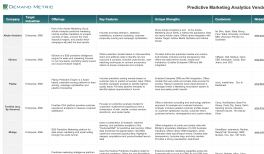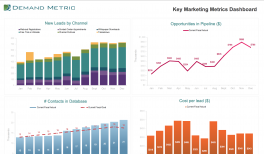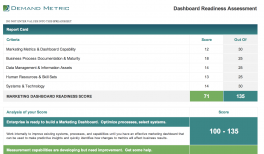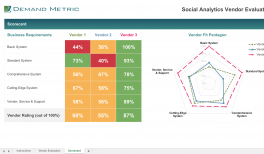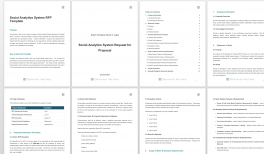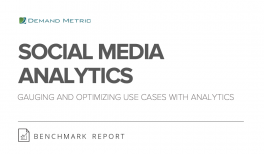Dun & Bradstreet sponsored a Demand Metric study to learn how companies are using acquired data and how that data is making a difference in campaigns, demand generation and other key results.
Acquired Data Benchmark Report
Resource Overview
Related Resources
Introduction
Marketers collect, store and use a lot of customer data, from a varied set of sources. Because marketing is actively engaged in demand generation and lead nurturing activities using new and changing technology, the ability to capture, store, repurpose and reuse data continues to expand, as does the sheer quantity of data available. The modern marketing organization is skilled at casting a wide, digital net to gather leads, qualify them and convert them too. Sales teams depend heavily on marketing’s ability to keep the pipeline of qualified leads full. In fact, a company’s success depends on marketing having an effective process for generating demand. The technology at marketing’s disposal for doing this work has become increasingly capable and sophisticated.
The Achilles heel to the demand generation process, is at its very foundation: the quality of the data. Prospects don’t always cooperate by surrendering their correct or complete contact information on those beautiful landing pages marketing creates. Even when the data in marketing automation or CRM systems is initially correct, it doesn’t stay that way: people change jobs or retire. Companies move, merge, are acquired, change business focus and go out of business. There are many reasons why the data in key marketing and sales systems goes stale or bad. Current, accurate and complete data is necessary for marketing to run effective campaigns and for sales to engage with prospects. Yet, less than half of participants in this study report having an effective process to ensure the quality of data in their key systems.
Two broad approaches exist to improve data quality, accuracy and completeness: an in-house data hygiene process, and using external data or services. In a study sponsored by Dun & Bradstreet, Demand Metric studied both approaches, looking closely at the use of acquired data in sales and marketing applications/solutions.
The goal of the study was to learn how companies are using acquired data and how that data is making a difference in campaigns, demand generation and other key results. This report details the findings of this study, providing benchmarks for acquired data performance and making the case for its use.
Table of Contents
- Introduction
- Executive Summary
- The State of Data Quality
- The Impact of Data Quality Issues
- Marketing with Acquired Data
- Analyst Bottom Line
- Acknowledgements
- About Dun & Bradstreet
- About Demand Metric
- Appendix: Survey Background
Research Methodology
The Acquired Data Benchmark Study survey was administered online during the period of March 3, 2015 through April 17, 2015. During this period, 201 responses were collected, 158 of which were complete enough for inclusion in the analysis. The data was analyzed to identify insightful relationships between variables in the study and to ensure the statistical validity of the findings. The representativeness of these results depends on the similarity of the sample to environments in which this survey data is used for comparison or guidance.

